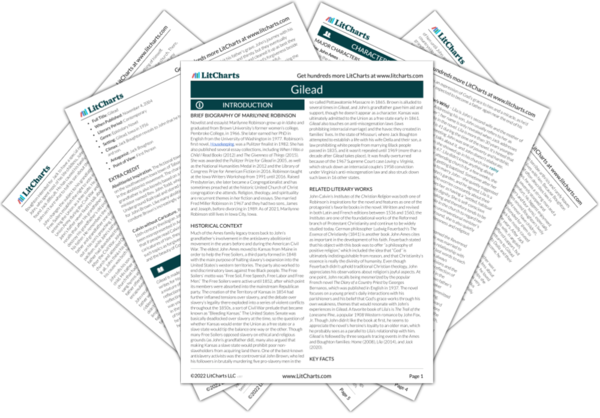In John’s mind, giving his son communion was a way of sharing an old memory with the boy, even though his son couldn’t understand at the time. When he reads this letter, then, he may be able to look back on his own childhood memory in a different way. John believes that sorrow and suffering are some of the most human things—even though the pain isn’t good in itself, it etches meaning into people’s lives.
